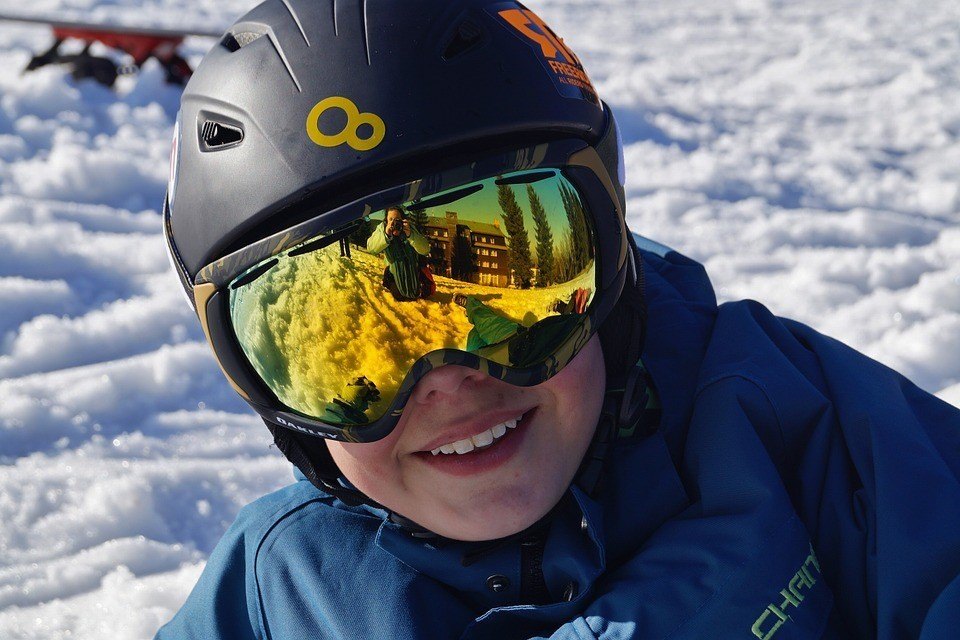Cold is here to stay. And the best way to enjoy it is spending a few days skiing. However, despite the insistence and the fact that most people know it is important to protect your eyes in snowy conditions, we still see many people practising winter sports without protection glasses.
When to protect your eyes in snowy conditions
When in snowy environments, sunlight effects may be increased to up to a 90%. For this reason, it is important to bear in mind that protection glasses not only are necessary while skiing or snowboarding, but also at any moment we are exposed to sun and snow.
Therefore, we must think about protecting our eyesight and, especially, protecting our children’s, while we play with snow, we go snowshoe hiking, we build igloos, we sled slide or we ride a snowmobile, not forgetting those moments when we rest but we are still exposed to UVA and UVB rays.
Why should we use the appropriate protection glasses?
The use of appropriate protection glasses for snowy environments provides great advantages. Some of them are:
- Safety increase from ultraviolet rays.
- They allow to better enjoy and admire the awesome landscapes we can find in the mountains.
- They protect from inclement weather (wind and cold).
- The protect from high-speed impact in the eye of any particle.
Photokeratitis or snow blindness
The lack of use or bad use of appropriate protection glasses in snowy environments may lead to what is known as photokeratitis or snow blindness.
It is a condition associated to solar exposure whose effects, as mentioned before, may increase by up to a 90%, not forgetting that at altitudes exceeding 1000 metres, UV ray proportion may be increased by 10%.
Symptoms that it causes usually appear after a period of 6 to 12 hours of having been exposed for a long time to sunlight. These can include:
- Eye redness
- Eyelid inflammation
- Foreign body sensation
- Pain
- Excessive sensitivity to light
- Headache
- Blurred vision
What kind of protection should we use?
The type of sunglasses will depend on the visual state of each person:
- Emmetropic patients (with an ideal refraction condition) will need to use glasses specially suited for sport activities, including proper UV filters.
- In case of patients having refraction errors (such as myopia, hyperopia, astigmatism…), they’ll need to use either contact lenses combined with glasses suited for winter sports with a proper UV filter or custom-made, corrective glasses for winter sports practice.
How should those eyeglasses be?
- They should have the appropriate UV rays filter, which when sunny will be a 4th level filter, keeping in mind that children require higher protection and that the fact that lenses are tinted does not guarantee they have a proper UV filter.
- They should be made of a material highly resistant to scratches and impacts. Most usual lenses are organic (made of high-quality optics polymers) and mineral lenses (made with glass, mainly composed of silicates).
- Preferably, they should be light-weighted, reason why organic lenses, which are lighter than mineral ones, would be ideal.
- They should block as little as possible the visual field.
- Preferably, for a higher adjustment, they should be anatomically custom-made.
- In case of refraction errors, they’ll need to have the appropriate correction, or be combined with corrective contact lenses.
- They must be well secured and adjusted to our face, as small or wrongly adjusted glasses may allow the access of sunlight through the sides.

